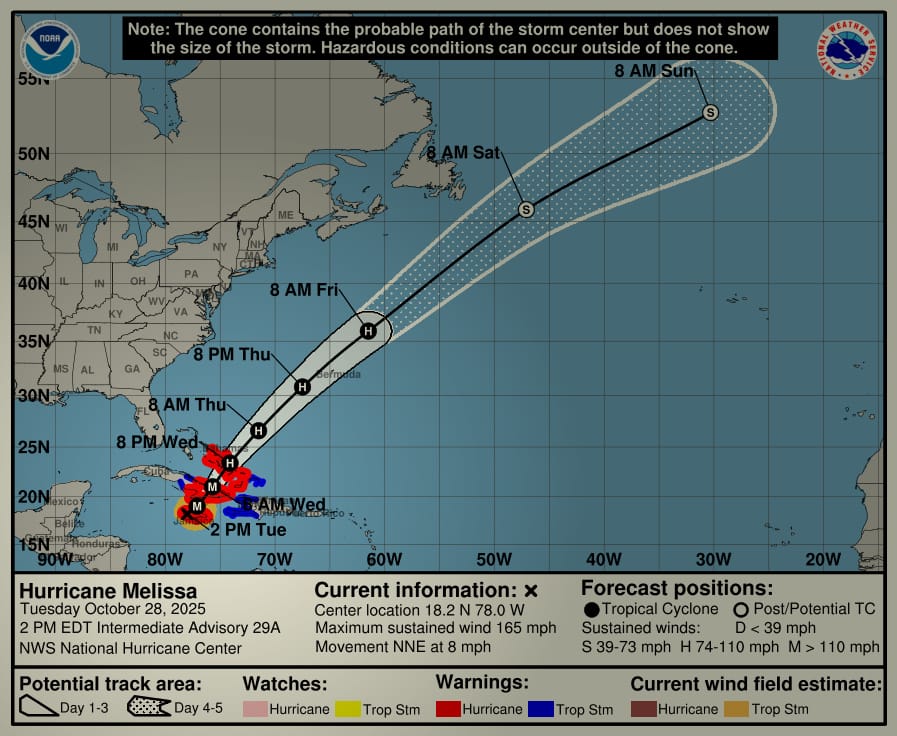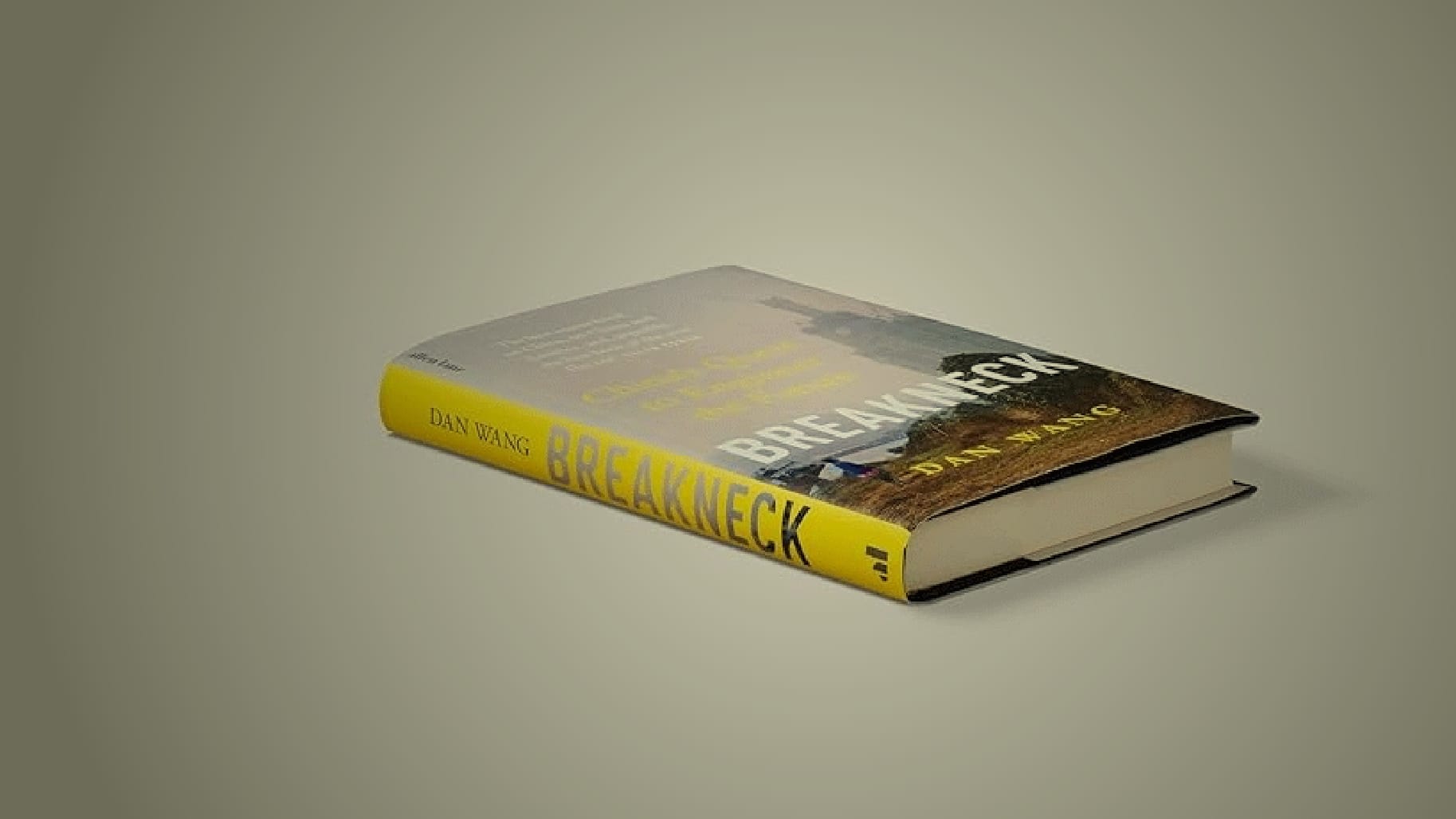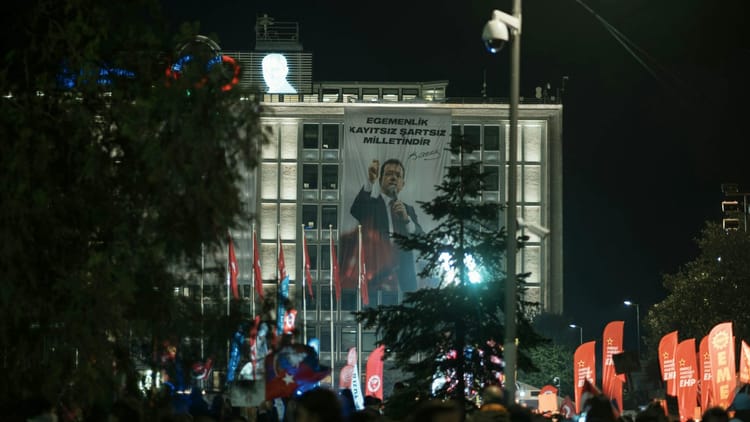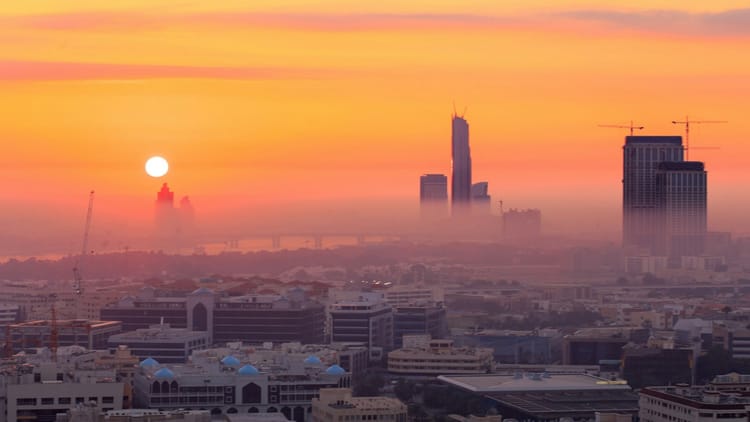Burying the evidence

Recently: What are all these American troops actually doing in the Caribbean?
Today: What are the stakes of Hamas staging a fake recovery? Israeli drones captured the sequence: Hamas operatives burying human remains in a pit, then “discovering” them hours later in front of the Red Cross.
+ For members: Why is China building so much, so fast? Dan Wang’s new book, Breakneck: China’s Quest to Engineer the Future.
& New music from Nala Sinephro ...
Staged recovery
On Monday night, Hamas handed Israel a casket after staging an elaborate deception in eastern Gaza City. Israeli drones captured Hamas operatives removing remains from a building, burying them in a freshly dug pit, then hours later excavating and “discovering” them in front of the Red Cross. The remains belonged to Ofir Tzarfati, a hostage whose body Israeli forces partially recovered in November 2023. Hamas apparently retained additional remains. Tzarfati’s parents said in a statement, “We have been forced to open Ofir’s grave and rebury our son.”
On Tuesday, Israel’s Prime Minister Benjamin Netanyahu ordered “powerful strikes” in Gaza and convened security officials to weigh Israel’s response. Options include pushing the yellow line—Israel’s withdrawal boundary—deeper into Gaza, retaking the Netzarim corridor that cuts across the strip, or restricting humanitarian aid, which Washington opposes. Hamas announced it would delay handing over another body on Tuesday evening, citing Israeli “violations.” The group says Israel is blocking joint search teams from entering areas under military occupation, while according to Israeli intelligence, Hamas knows the locations of some bodies and is delaying their return deliberately.
The ceasefire depends on mechanisms that don’t verify compliance—they test what violations the framework can absorb. Both sides now operate inside an agreement where theatrical gestures substitute for actual obligations, and where the question isn’t whether violations occur but whether they trigger collapse. The drone footage makes the dynamic explicit: Hamas performs compliance while withholding what it promised; Israel documents the deception while calibrating how hard to push back. U.S. Vice President J.D. Vance said last week the return of deceased hostages won’t happen “overnight,” effectively validating a process in which delay has become the process. President Donald Trump told Netanyahu he’d consider supporting the resumption of the war if Hamas refuses its obligations, but the staging suggests both sides understand the ceasefire’s real terms—a recalibration of conflict, not its end.

Wary of fast fashion?
Shop Congo Clothing Company and
make a difference—in style.
Meanwhile
- Imperial proxy. Nicolas Maduro suspended all energy agreements with Trinidad and Tobago on Monday after a U.S. guided-missile destroyer docked in Port of Spain for joint exercises. Venezuela’s president accused Trinidad of becoming “an aircraft carrier of the U.S. empire against Venezuela” and pulled out of a 2015 deal allowing joint natural gas exploration in waters between the two countries. The Dragon gas field project—delayed for years under U.S. sanctions on Venezuela—had recently received American approval for Trinidad’s national company and Shell to develop it. Trinidad depends on gas for 93 percent of its energy needs. In the meantime, the U.S. military has destroyed four more boats it says were carrying drugs, killing 14 people—the largest single-day toll since its campaign against alleged smugglers began in September.
- Alternative architecture. China and the Association of Southeast Asian Nations signed an upgraded free-trade pact in Kuala Lumpur on Tuesday, expanding cooperation to digital and green economies as both weather Trump’s tariffs. The so-called version 3.0 covers a market exceeding 2 billion people. Trade between China and the bloc hit $785 billion in the first nine months of 2025, up nearly 10 percent year-on-year. Li Qiang told the summit that “pursuing confrontation instead of solidarity brings no benefit” against economic coercion—a swipe at Washington’s protectionism. Trump attended the ASEAN summit on Sunday and signed bilateral deals with Cambodia, Malaysia, Thailand, and Vietnam, setting his “reciprocal tariff” rates at 19 to 20 percent.
- Efficiency through elimination. Amazon cut 14,000 corporate jobs on Tuesday—potentially rising to 30,000—in what would be the company’s largest workforce reduction since 27,000 layoffs in 2023. CEO Andy Jassy told employees the cuts aim to make Amazon operate “like the world’s biggest startup” and position the company for AI adoption. “We will need fewer people doing some of the jobs that are being done today,” Jassy wrote in June, linking the cuts explicitly to generative AI and agents that “should change the way our work is done.” The company says it will continue hiring in strategic areas while finding “additional places we can remove layers.”
- Church and state in the Abe assassination. Tetsuya Yamagami pleaded guilty Tuesday to murdering Japan’s former prime minister Shinzo Abe at the opening of his trial in Nara, three years after the assassination. “Everything is true,” the 45-year-old told the court quietly. Yamagami shot Abe with a homemade firearm during a July 2022 campaign speech, reportedly motivated by anger over Abe’s ties to the Unification Church, which Yamagami blamed for his family’s financial ruin after his mother donated roughly $660,000 to the group. The killing exposed widespread connections between the church and Japan’s ruling Liberal Democratic Party, forcing four cabinet ministers to resign. A Tokyo court ordered the church’s dissolution in March. The trial runs through January, with a verdict expected on January 21.
- Melissa hits Jamaica. Hurricane Melissa made landfall in Jamaica on Tuesday as a Category 5 storm with sustained winds of 280 kilometers an hour—the strongest storm to strike the island directly since record-keeping began 174 years ago. The storm crawls north-northeast at 13 kilometers an hour, meaning catastrophic winds, flooding, and storm surges will last for days rather than hours. Forecasters expect up to a meter of rain and storm surges, reaching 4 meters along the island’s southern coast. At least seven people have died so far across the Jamaica, Haiti, and the Dominican Republic. The Red Cross warns that up to 1.5 million people may be directly affected. Melissa weakened to Category 4 as it crossed western Jamaica, heading toward eastern Cuba.

From the latest despatch
The engineering state
Why is China building so much, so fast? Dan Wang, Breakneck: China’s Quest to Engineer the Future.
This week, senior Communist Party officials in Beijing met to hear President Xi Jinping outline the next five-year plan of the People’s Republic of China. The Party hasn’t yet shared any details publicly, apart from the official publication Xinhua News Agency noting that it will focus on “high-quality” development and technology. Still, if the past is a clue to the present, there’s likely going to be many large-scale projects. When Xi unveiled the Fourteenth Five-Year Plan in 2020, the party promised to begin work on a truly stunning range of projects.

Not only would China “build hydropower bases on the lower reaches of the Yarlung Tsangpo River,” construct massive canal systems to funnel water from the great southern rivers to the northern cities, and “add 3,000 kilometers of urban rail transit”; it would also “carry out interstellar exploration such as Mars orbiting and asteroid inspection [and] construct hard X-ray free-electron laser devices, high-altitude cosmic ray observation stations, comprehensive extreme condition experimental devices, deep underground cutting-edge physical experimental facilities with very low background radiation.”
Your loyal guide to a changing world.
Membership with The Signal means exclusive access to premium benefits:
- Regular profiles on the questions behind the headlines
- In-depth feature interviews with our network of specialist contributors from across America and around the world
- The despatch, our weekly current-affairs and cultural-intelligence briefing
- Early access to new products, including print extras
It also means vital support for an independent new enterprise in current-affairs journalism.
New music
‘Dawn’
From the soundtrack to the new mixed-martial-arts movie The Smashing Machine, an overture simply titled “Dawn.” The Belgian composer Nala Sinephro wrote it as a warm calm before the film’s storms—in simple, golden tones from a piano, layered with synths, flute, and a beautiful, fluttery saxophone.





